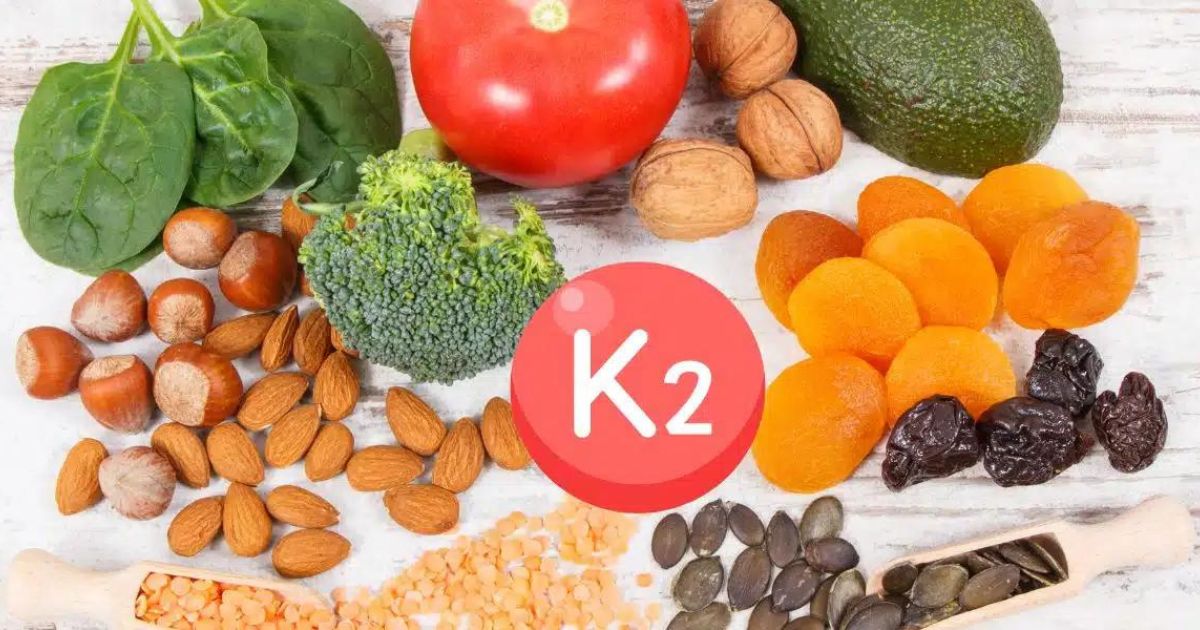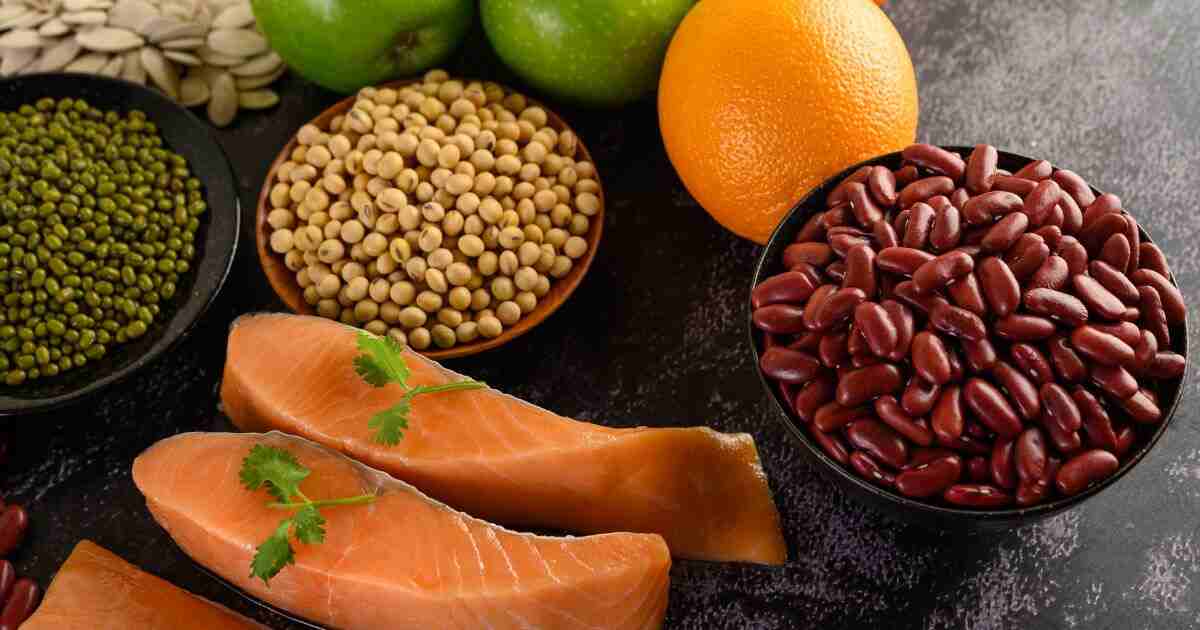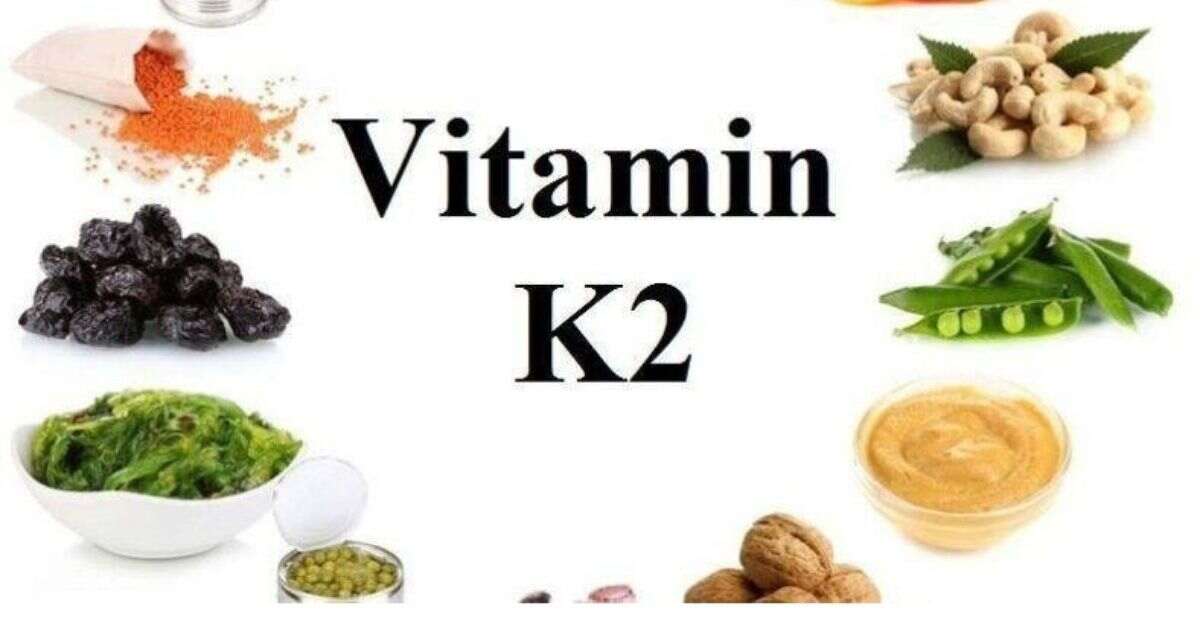Vitamin k2 is necessary for the proper functioning of the human body. It plays a crucial role in bone health, cardiovascular health, and dental health.
Vitamins k2 is a fat-soluble vitamin that is important for the activation of several proteins in the body that are involved in blood clotting, bone metabolism, and other important processes. It is found in some foods, such as fermented foods, cheese, and egg yolks, but can also be produced by the body in small amounts.
However, many people do not consume enough vitamin k2 in their diets, which can lead to a deficiency and increased risk for various health issues. In this article, we will explore the importance of vitamin k2 in the human body and the foods and supplements that can help ensure adequate intake.

Credit: www.medicalnewstoday.com
Why Vitamin K Is Essential
The human body needs several vitamins and minerals to function properly, and vitamin k is one of them. But why is vitamin k essential? In this section, we’ll explore the importance of vitamin k, with a focus on vitamin k2.
Vitamin K1 Vs. K2
There are two main types of vitamin k: k1 and k2. Vitamin k1 is primarily found in green leafy vegetables, while vitamin k2 is found in animal products and fermented foods. The primary difference between these two types is how they are used in the body.
- Vitamin k1 is primarily used by the liver to activate blood-clotting proteins.
- Vitamin k2, on the other hand, is essential for calcium metabolism and bone and heart health.
The Role Of Vitamin K In The Human Body
Vitamin k is a fat-soluble vitamin that plays several crucial roles in the human body. Key points include:

- Vitamin k is essential for blood clotting, helping wounds to heal effectively.
- Vitamin k also plays a critical role in bone health by regulating calcium levels in the body.
- Without enough vitamin k, the risk of fractures and osteoporosis increases.
- Vitamin k may also support heart health by reducing the risk of arterial calcification and heart disease.
How Does Vitamins K2 Support And Benefit Human Health?
Now that we know the importance of vitamin k2 in the body let’s explore how it benefits human health. Key points include:
- Vitamins k2 activates proteins that help regulate calcium deposition in bones.
- Without enough vitamins k2, calcium may deposit in arteries, leading to arterial stiffness and cardiovascular disease.
- Studies have also shown that vitamin k2 may help maintain healthy insulin and glucose metabolism, reducing the risk of diabetes.
- Recent studies have also suggested that vitamin k2 may support brain function and reduce the risk of neurodegenerative diseases.
Vitamin k is an essential nutrient for human health, with vitamin k2 playing a crucial role in bone, heart, and brain health. By ensuring that we consume enough vitamin k2 through our diet or supplements, we can support overall health and well-being.

The Importance Of Vitamins K2 For Bone Health
The Human Body Needs Vitamins K2
Vitamin k2 is an essential nutrient that many people overlook, but it plays a crucial role in maintaining good health, particularly when it comes to bone health. Although vitamin k1 is commonly associated with blood clotting, vitamin k2 has different and equally important functions, including regulating bone health, which is the focus of this article.
How Bone Loss Occurs
Before we dive into the importance of vitamins k2, let’s briefly discuss how bone loss occurs. Aging is the primary factor that leads to bone loss, but poor lifestyle choices, such as smoking, lack of exercise, and an unhealthy diet, can exacerbate the problem.
As we age, our bones start to lose density, making them weaker and more susceptible to fractures.
The Role Of Vitamins K2 In Bone Health

The good news is that our bodies have mechanisms in place to help prevent bone loss, such as the regulation of calcium in our bones. This is where vitamin k2 comes in. The nutrient acts as a co-factor for a protein called osteocalcin, which is responsible for binding calcium to the bone matrix, helping to maintain bone density and strength.
The Biological Mechanism By Which Vitamins K2 Controls Bone Health
The process by which vitamin k2 helps to regulate bone density is complex but fascinating. In essence, vitamin k2 helps to activate a protein called matrix gla protein (mgp), which helps to prevent calcium from depositing in the wrong places.
Calcium deposits in blood vessels, for example, can lead to atherosclerosis and an increased risk of heart disease. Similarly, calcium deposits in soft tissues, such as joint cartilage, can lead to arthritis. By ensuring that calcium is deposited where it’s needed (in our bones), vitamins k2 helps to maintain good bone health.
How Does Vitamins K2 Protect Against Bone Fractures

Research has indicated that vitamin k2 supplementation can help to protect against fractures, particularly in postmenopausal women who are at a higher risk of osteoporosis. Vitamin k2 works by improving bone strength and reducing the risk of falls that can lead to fractures in the first place.
Additionally, studies have shown that vitamins k2 can improve bone density, and some experts believe that it may improve bone quality as well.
Vitamins k2 plays a vital role in bone health. Incorporating vitamin k2-rich foods, such as fermented foods, cheese, and egg yolks, into our diets, can help to ensure that our bones remain strong and healthy.
The Role Of Vitamins K2 In Cardiovascular Health
The Link Between Vitamins K2 And Heart Disease Prevention
Vitamin k2 is a crucial nutrient that plays a significant role in cardiovascular health. Studies have shown that vitamin k2 deficiency could be linked to a higher risk of heart disease. Here’s how it works:
- Vitamins k2 activates a protein called matrix gla protein (mgp), which is essential for preventing calcium buildup in the arteries.
- Without mgp activation from vitamin k2, calcium can accumulate on artery walls, leading to atherosclerosis (hardening and narrowing of the arteries) – a risk factor of heart disease.
The Effect Of Vitamins K2 On Blood Vessels
In addition to preventing calcium buildup in the arteries, vitamin k2 also has a direct effect on blood vessels’ health. Here are some key points:
- Vitamins k2 may protect the endothelial cells lining the blood vessels, improving their function and reducing the risk of cardiovascular disease.
- Research suggests that vitamins k2 supplementation could improve vascular elasticity, preventing the hardening of the arteries.
How Vitamin K2 May Lower Blood Pressure
High blood pressure is a significant risk factor for heart disease, but vitamin k2 may be able to help. Here are some ways vitamins k2 can help lower blood pressure:
- Vitamin k2 has been shown to reduce arterial calcification, which can lead to high blood pressure.
- Animal studies have found that vitamins k2 can lower blood pressure by activating the relaxation response in the blood vessels.
The Impact Of Vitamins K2 On Arterial Stiffness
Arterial stiffness is a significant risk factor for cardiovascular disease, but vitamin k2 may be able to improve it. Here are some key points:
- Vitamins k2 can activate mgp, which helps prevent calcium buildup in the arteries, reducing arterial stiffness.
- Research has found that vitamins k2 supplementation can lead to improved arterial elasticity and reduced stiffness, reducing the risk of cardiovascular disease.
Overall, vitamins k2 is an essential nutrient for maintaining cardiovascular health. Including vitamin k2-rich foods, such as aged cheese, egg yolks, and grass-fed animal products, in your diet is crucial for preventing heart disease and reducing the risk of cardiovascular events.
Vitamins K2 And Brain Function
The Potential Benefits Of Vitamin K2 On Cognitive Functions And Memory
Vitamins k2 has been linked with several potential benefits in maintaining cognitive functions and memory. Here are some of the key points about the potential benefits of vitamin k2 on cognitive functions and memory:
- Vitamins k2 helps in promoting brain health by improving cognitive functions and overall memory.
- It has been found to enhance verbal episodic memory performance, which is related to the ability to recall past events.
- Vitamin k2 may also help in reducing the risk of developing alzheimer’s disease and dementia.
The Role Of Vitamins K2 In Neuronal Health
One of the essential roles of vitamins k2 is in maintaining neuronal health. Here are some of the key points about the role of vitamins k2 in neuronal health:
- Vitamin k2 helps in the development and maintenance of nerve cells and their connections.
- It aids in the production of sphingolipids, which are vital components of the myelin sheath that surrounds and protects nerve fibers.
- Vitamin k2 also plays a role in the synthesis of neurotransmitters, which are necessary for proper brain function.
How Does Vitamin K2 Reduce Brain Inflammation
Inflammation is a contributing factor in the development of several brain disorders. Here are some of the key points about how vitamin k2 can reduce brain inflammation:
- Vitamin k2 helps in reducing the expression of inflammatory markers in the brain.
- It inhibits the activation of the nuclear factor-kappa b (nf-κb), which is a protein complex that regulates the expression of genes involved in inflammation and immune response.
- Vitamin k2 also upregulates anti-inflammatory cytokines, which are molecules that help in reducing inflammation.
Vitamin K2 Deficiency And Its Impacts On Human Health
Vitamin k2 plays a critical role in maintaining bone and heart health. However, many people are not consuming enough of this essential nutrient. If you’re not getting enough vitamin k2, you may be at risk for developing significant health issues.
In this section, we will discuss the risk factors for vitamin k2 deficiency, potential health consequences, and the importance of vitamin k2 supplementation.
Risk Factors For Vitamin K2 Deficiency:
- A diet low in vitamin k2 rich foods like grass-fed butter, cheese, and egg yolks
- Digestive issues that can interfere with the absorption of fat-soluble vitamins
- Proton-pump inhibitors (ppis) or antacids that reduce stomach acid production, which is needed for vitamin k2 absorption
- Certain medications, such as antibiotics, that can disrupt gut bacteria and interfere with vitamin k2 production
The Potential Health Consequences Of Vitamin K2 Deficiency:
- Increased risk of osteoporosis and bone fractures
- Calcium buildup in the arteries, which can contribute to heart disease
- Higher incidence of cancer and diabetes
- Impaired cognitive function and mobility in older adults
The Importance Of Vitamin K2 Supplementation:
Supplementation is an effective way to ensure you are getting enough vitamin k2. Studies have shown that taking a vitamin k2 supplement may reduce the risk of bone fractures and improve heart health. It’s important to speak with your healthcare provider before starting any new supplement.
Vitamin k2 is a vital nutrient for maintaining optimal health, and deficiency can cause significant health problems. Make sure to consume a diet rich in vitamin k2 and consider supplementation if necessary.
Frequently Asked Questions Of The Human Body Needs Vitamin K 2
What Is Vitamin K 2?
Vitamin k 2 is an essential nutrient that helps to regulate calcium metabolism and keep bones healthy and strong. It is found naturally in certain types of foods such as leafy greens, fermented foods, and animal products.
What Are The Benefits Of Vitamin K 2?
Vitamin k 2 plays a crucial role in maintaining a healthy cardiovascular system, supports strong bones, and promotes healthy skin. It also helps to reduce the risk of certain types of cancer and improve cognitive function.
How Much Vitamin K 2 Do I Need?
The recommended intake of vitamin k 2 for adults is typically around 100-200 mcg per day. However, it may vary depending on your age, gender, and overall health status. It is always recommended to consult with your doctor before taking any supplements.
What Are The Sources Of Vitamin K 2?
Some of the best natural sources of vitamin k 2 include animal products such as grass-fed meat and dairy, egg yolks, and certain types of fermented foods like natto. Leafy greens like kale, spinach, and broccoli also contain small amounts of vitamin k 2.
Can I Take Vitamin K 2 Supplements?
Yes, you can take vitamin k 2 supplements to meet your daily requirements if you are not getting enough from your diet. However, it is important to consult with your doctor before taking any supplements as they may interact with certain medications and have side effects.
Conclusion
All in all, vitamin k2 is an essential nutrient that plays a crucial role in maintaining proper body functions. The benefits of this vitamin go far beyond just aiding in blood clotting. Vitamin k2 can help reduce the risk of heart disease, improve bone health, and even support brain function.
By incorporating vitamin k-rich foods into your diet, such as fermented foods or leafy greens, you can ensure that you’re getting enough of this vital nutrient. Supplements can also be an option, but it’s always best to consult with a healthcare professional before taking any new supplements.
In today’s busy world, it’s easy to overlook the importance of proper nutrition, but by paying attention to what we put in our bodies, we can give ourselves the tools we need to maintain a healthy and happy life.




